“We give space to ourselves. We give space to our emotions. If we want to cry, we cry. If we want to feel angry, it’s OK… And we accept that emotions can swell at any time.” —Dr. Tony Nader
Over the past year and a half, we have all been dealing with loss—of loved ones, of homes, of jobs and resources, of normal life and routines. To help guide us through these difficult times, Tony Nader, M.D., Ph.D., M.A.R.R., shares the steps we can take to understand and handle the range of emotions that accompany loss and grief, while becoming more anchored in our Self, our Consciousness, to grow. Here are highlights from Dr. Nader’s insightful suggestions in his October 10, 2021, Facebook Live talk, which included a Q&A with viewers. You can watch the talk in full on any of your favorite platforms:
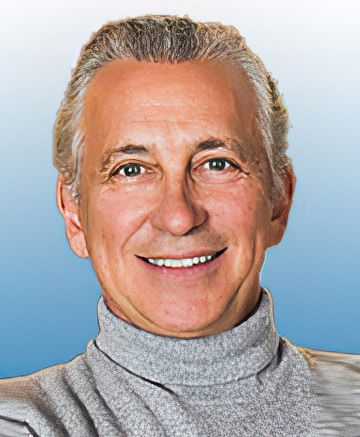
Watch Dr. Nader’s talk (36:05) on Facebook ►
Dr. Nader is the global leader of the teaching of the Transcendental Meditation technique and related programs by 120 nonprofit organizations around the world. He is a medical doctor and neuroscientist trained at Massachusetts Institute of Technology (Ph.D. in neuroscience) and Harvard University, and the author of the best-selling book One Unbounded Ocean of Consciousness: Simple Answers to the Big Questions in Life (Penguin Random House, April 2021). Order the e-book at DrTonyNader.com ►
Dr. Nader shares the steps we can take to understand and handle the range of emotions that accompany loss and grief, while learning how to overcome adversity and grow.
Change and Loss Are Part of Life
We all experience loss in our lives, Dr. Nader begins: “Loss is part of life, and this is something very important to realize. When we understand this, it is a realization that we are not in a unique situation. People who have gone through life have seen many kinds of losses, particularly those who are my age or older.”
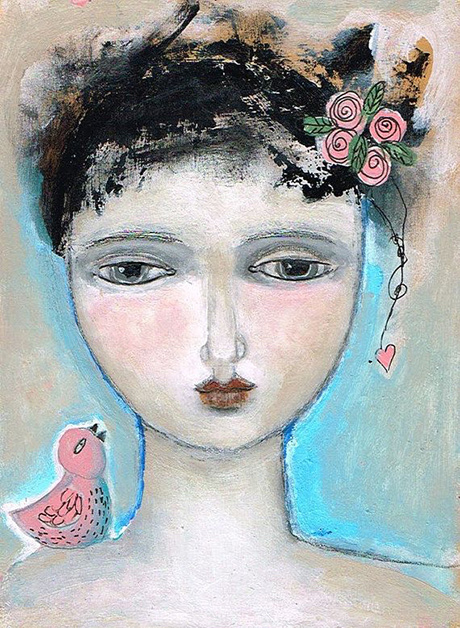
“Life is always changing. Change is part of life.” —Dr. Tony Nader (Art by Sandi Fitzgerald)
Whether we have lost loved ones or experienced other kinds of loss, such as a job or bodily function after an illness or accident, “All of this loss is very traumatic. Even small losses are traumatic,” Dr. Nader says. “It’s because they feel like they pull the rug from under our feet, they throw us off.”
We need to first realize “that life is always changing. Change is part of life,” he says. The closer and more important a person or situation is to you, and the longer they have been part of your life, the greater the sense of loss when that situation changes, and the more the grief and sadness.
Dr. Nader quotes Anatole France, the French poet and writer, who wrote, All changes, even the most longed for, have their melancholy; for what we leave behind us is a part of ourselves; we must die to one life before we can enter another
(The Crime of Sylvestre Bonnard, 1881).
This means that “even the changes that are most desired in our life, they have their melancholy, their little sadness,” Dr. Nader explains. “And why is that? It’s because all that we leave is actually part of ourself, part of who we are. What makes us who we are are the experiences we have in our life… So ultimately, in any loss, we are losing part of who we feel we are.”
With all change, even the most difficult losses, Dr. Nader says, “What is important is that we are having the possibility to change things. We are having the possibility to make things better.”
Watch Dr. Nader’s talk (36:05) on Facebook ► Instagram ► YouTube ► iTunes ► Spotify ► SoundCloud ►
“What is important is that we are having the possibility to change things. We are having the possibility to make things better.” —Dr. Tony Nader
Giving Space to Ourselves to Accept Our Feelings
Loss leads to grief, and that grief is natural, Dr. Nader reminds us. “Therefore, the first thing we have to do is accept that we are grieving. We accept that there is a loss, and therefore accept the grief that comes with the loss,” he says.
“And the second thing we have to know is that grief is different for different individuals—and different for ourselves, in terms of the different stages of grief,” he continues. Grief may begin with denial: “We cannot believe that the person that was with us, that was part of us, has been lost and is gone.”
Another feeling that may come with grief is guilt. Someone may feel guilty because they haven’t cried or didn’t feel like crying, but “this is their own way of reacting to loss,” Dr. Nader says. “Others may have anger—anger about the situation, about why it happened, about life, about circumstances, about others. They may also feel anger about themselves—’Maybe I could have done this,’ or ‘Maybe I should have done that.’ This is also part of the reaction to loss.”

“We give space to ourself. We give space to our emotions.” —Dr. Tony Nader (Art by Catrin Welz-Stein)
Whatever we may be feeling, “Now is not the time to be judgmental,” Dr. Nader emphasizes. “These are natural reactions, and you don’t have to be judgmental about yourself if you are feeling denial or anger. Denial, for example, is, in a way, a reality that is true because the person is never really completely lost from you. Physically they are not there, but they are part of you, part of what made you,” he says.
“We give space to ourself. We give space to our emotions. If we want to cry, we cry. If we want to feel angry, it’s OK. We can accept that, we can welcome that,” Dr. Nader says. “Of course, it has to be within the norms of not doing things that can create problems for ourselves.”
If grief leads to circumstances of severe depression or not being able to function in one’s life, talk with professional counselors who deal with loss, whether from the perspective of mental health or religious values.
Grief can also take time to finish, Dr. Nader says: “We think we have gone out of the grief, and suddenly we find we are in a special situation, and that situaton prevents us from experiencing life in a joyful way, and we start crying again. We feel as if we are going backwards, but that’s not the case… Emotions can swell at any time.”
It is also important to understand that life can be lived, can be full. “We have to know how to let go. There is a moment which comes where we have to accept. But this having to accept has to happen naturally—again, not forcing anything, giving space to our emotions, accepting the grief and living it in the way we are,” he emphasizes.
The process of acceptance involves “going back to our Self and anchoring our life in our own state of consciousness, in our state of awareness, which we do with our Transcendental Meditation practice. This helps us to know and accept that life will be offering great potentials and possibilities,” Dr. Nader says. “We have to be able, at one point, to know that life can be lived in the most complete way, in the most holistic way, with great feelings of happiness and joy and great achievements.”
Watch Dr. Nader’s talk (36:05) on Facebook ► Instagram ► YouTube ► iTunes ► Spotify ► SoundCloud ►
“We have to be able, at one point, to know that life can be lived in the most complete way, in the most holistic way, with great feelings of happiness and joy and great achievements.” —Dr. Tony Nader
Loss Gives Us the Opportunity to Grow in Wholeness
“Loss can also teach us something that is very profound, and that is how to be self-sufficient, and to be established and anchored in one’s Self, and accept life as being a reality that is holistic… What we need is to go to that which does not change, and that which does not change is our own deep Self, our inner Being. Our inner Being is immortal, invincible, and that is who we are,” Dr. Nader says.
“And that’s where transcending and practicing the Transcendental Meditation technique are very important. It’s like a ship on the ocean. The ocean, if it’s very agitated, creates fear. But if you have an anchor that you can strongly anchor in the depths of the ocean, then you feel more secure. So what we want is to anchor our life within our Consciousness, within that which does not change, within the field of immortality, the field of wholeness,” he explains.
“Our consciousness gains and learns and expands so we can make out of loss something that is a step towards taking our life in our hands, towards anchoring ourselves more within our Self,” says Dr. Nader. “That doesn’t mean we are not feeling compassion and love, or we are feeling less towards the other. On the contrary, our responsibility towards ourself and to the other is to take back our life, and at every moment in our life, to see this as an opportunity to grow, an opportunity to be stronger, an opportunity to face situations.”
Dr. Nader emphasizes the importance of timing. “Now this we do once we have done our grief… We have to let the grief happen… But there is a time where we have to be intelligent about it, where we have to be realistic about it, where we have to let the things that have gone actually go, even if it’s a loved one, and then start from whatever point we are in.”
“Life is always changing, and at every point of change, there is the possibility of growth, there is a possibility of strength, there is the possibility of enjoyment, of fullness, of wholeness, and of all goodness and all that is powerful to happen.” —Dr. Tony Nader
In conclusion, Dr. Nader circles back to change as a process of growth and evolution: “Life is always changing, and at every point of change, there is the possibility of growth, there is a possibility of strength, there is the possibility of enjoyment, of fullness, of wholeness, and of all goodness, and all that is powerful to happen. And life can be lived, no matter how big is the loss. There is always that challenge to start again and to stand up and guide one’s life towards the best.”
Watch Dr. Nader’s talk (36:05) on Facebook ► Instagram ► YouTube ► iTunes ► Spotify ► SoundCloud ►
© Copyright 2021, Tony Nader, M.D., Ph.D. All rights reserved. Do not reproduce without written permission of the author.
Order One Unbounded Ocean of Consciousness at DrTonyNader.com ►
Find Dr. Nader’s talks on his Facebook page ►
Find Dr. Nader’s podcasts on iTunes ► Spotify ► SoundCloud ► and Google Play, Cashbox, and other platforms.

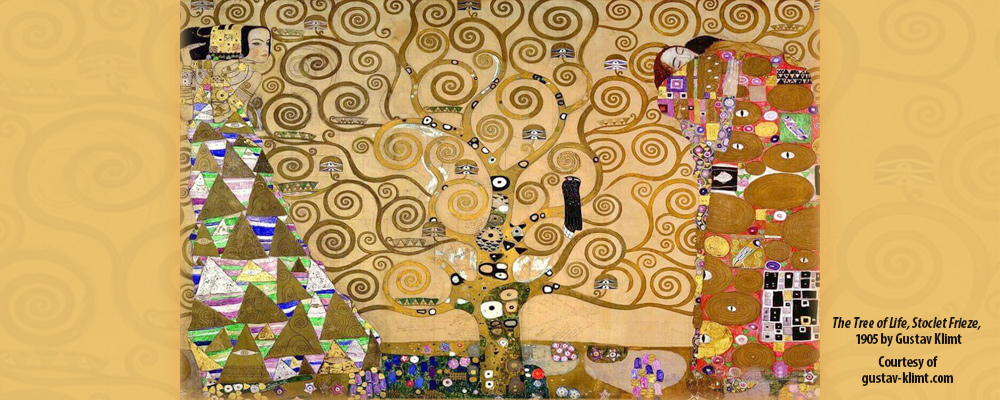
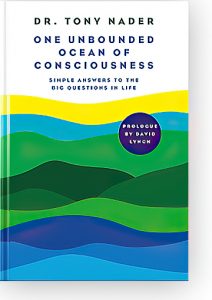
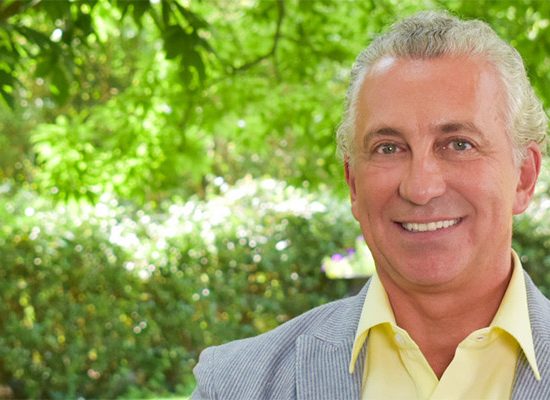
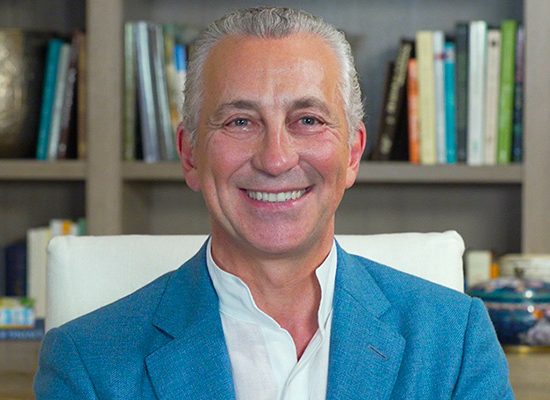
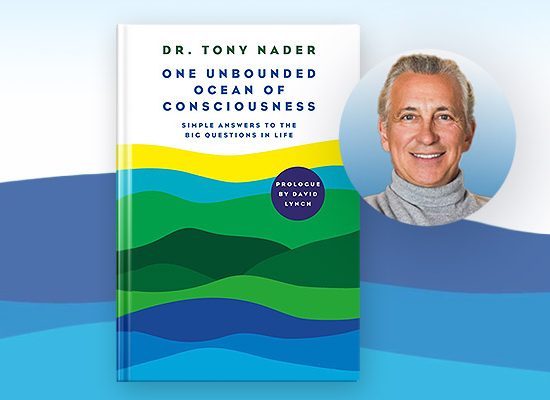
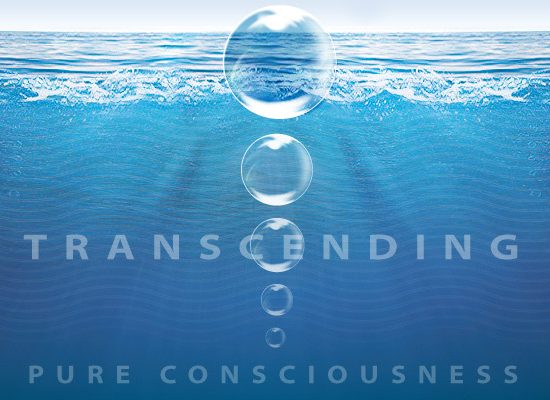
Thank you for this presentation. I never looked at loss of job/finance as a real loss and you were able to give me a different perspective and tools that can really help me overcome some of the difficulties that I have been experiencing. Thank you!